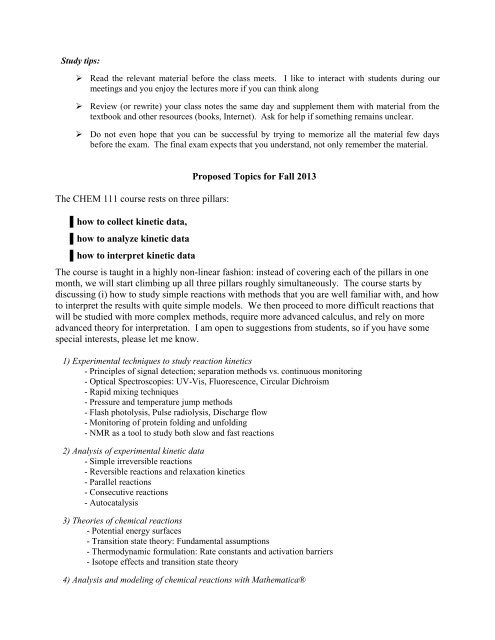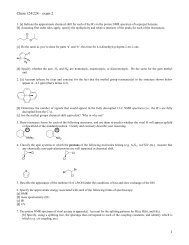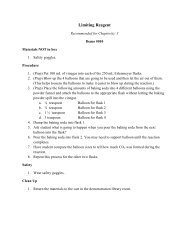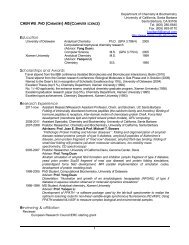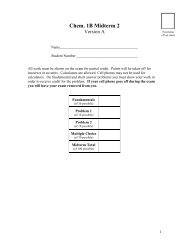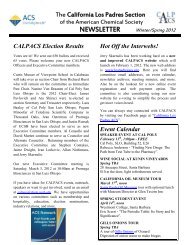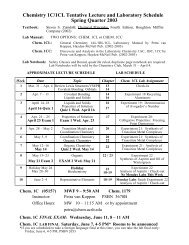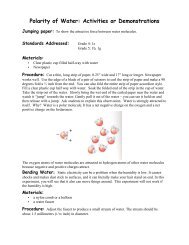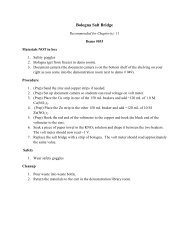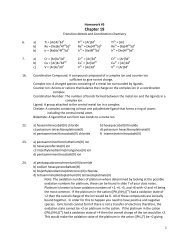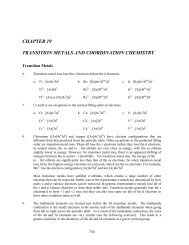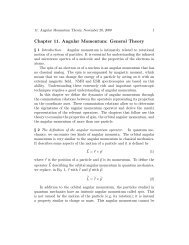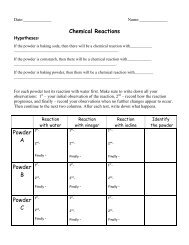Chemical Kinetics
Chemical Kinetics
Chemical Kinetics
Create successful ePaper yourself
Turn your PDF publications into a flip-book with our unique Google optimized e-Paper software.
Study tips:‣ Read the relevant material before the class meets. I like to interact with students during ourmeetings and you enjoy the lectures more if you can think along‣ Review (or rewrite) your class notes the same day and supplement them with material from thetextbook and other resources (books, Internet). Ask for help if something remains unclear.‣ Do not even hope that you can be successful by trying to memorize all the material few daysbefore the exam. The final exam expects that you understand, not only remember the material.The CHEM 111 course rests on three pillars:▌how to collect kinetic data,▌how to analyze kinetic data▌how to interpret kinetic dataProposed Topics for Fall 2013The course is taught in a highly non-linear fashion: instead of covering each of the pillars in onemonth, we will start climbing up all three pillars roughly simultaneously. The course starts bydiscussing (i) how to study simple reactions with methods that you are well familiar with, and howto interpret the results with quite simple models. We then proceed to more difficult reactions thatwill be studied with more complex methods, require more advanced calculus, and rely on moreadvanced theory for interpretation. I am open to suggestions from students, so if you have somespecial interests, please let me know.1) Experimental techniques to study reaction kinetics- Principles of signal detection; separation methods vs. continuous monitoring- Optical Spectroscopies: UV-Vis, Fluorescence, Circular Dichroism- Rapid mixing techniques- Pressure and temperature jump methods- Flash photolysis, Pulse radiolysis, Discharge flow- Monitoring of protein folding and unfolding- NMR as a tool to study both slow and fast reactions2) Analysis of experimental kinetic data- Simple irreversible reactions- Reversible reactions and relaxation kinetics- Parallel reactions- Consecutive reactions- Autocatalysis3) Theories of chemical reactions- Potential energy surfaces- Transition state theory: Fundamental assumptions- Thermodynamic formulation: Rate constants and activation barriers- Isotope effects and transition state theory4) Analysis and modeling of chemical reactions with Mathematica®


